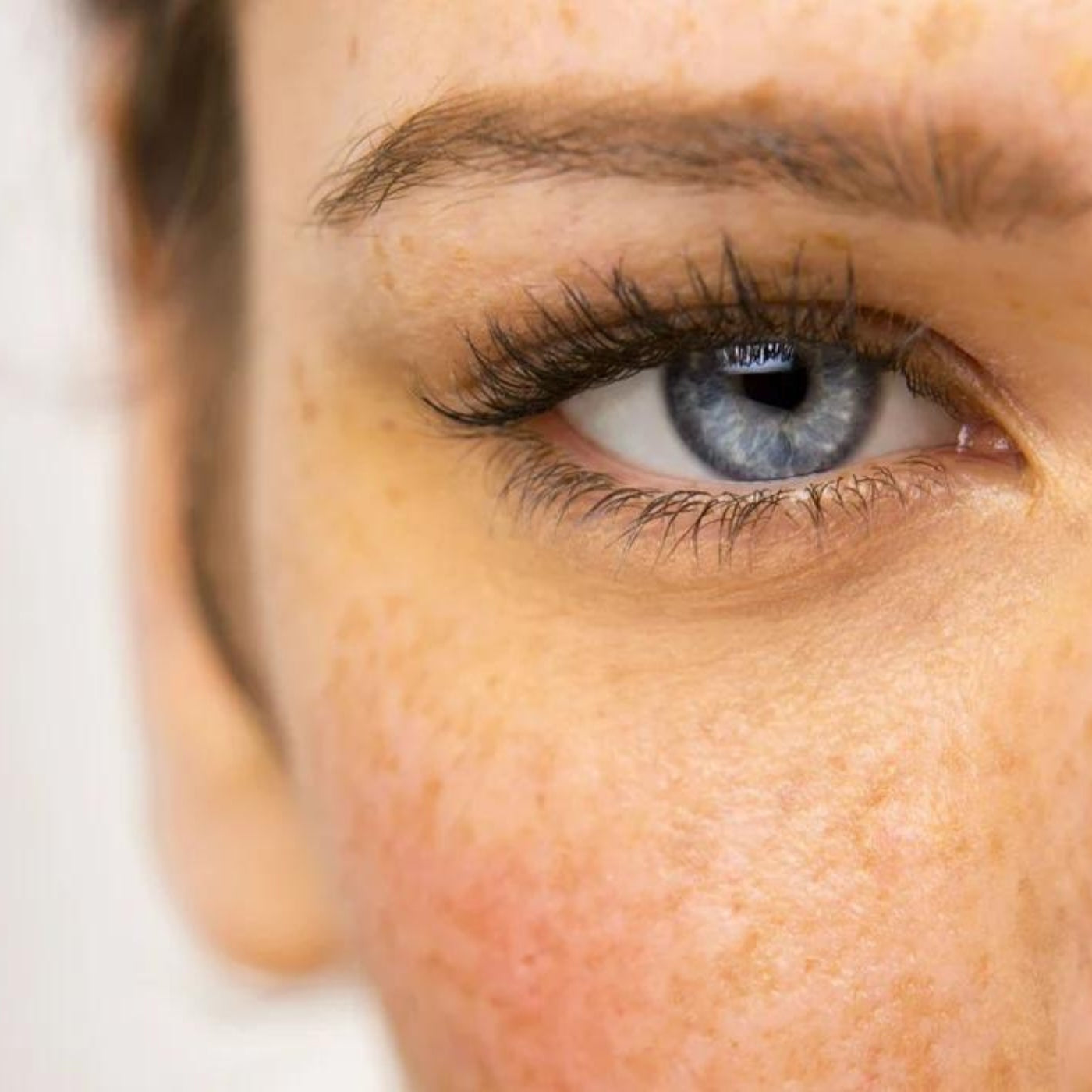
Did you know studies show that, along with minimizing wrinkles, one of the biggest concerns for women today is uneven skin tone and how to get rid of age spots. In fact, searches for ‘hyperpigmentation’ – the broad, all-encompassing term for liver spots, melasma and mottled skin tone- rose by 140 per cent during lockdown.
When it comes to dark spot treatments, there are so many options out there that it can be hard to know where to start. What ingredients should you look for? And most important, which ones will get rid of dark spots for good?
First, let’s have a look at the cause of hyperpigmentation.
What causes dark spots?
Dark spots or hyperpigmentation are due to the overproduction of melanin in the skin by melanocytes. This extra melanin can be triggered by a lot of different things, such as
- hormones—both estrogen and progesterone—can increase the level of melanin—why pregnant women see dark spots that often lighten following birth;
- the sun can increase the level of melanin—why we have more dark spots after the summer;
- age can increase the size of the melanocytes—why we see dark age spots as we grow older.
Other factors, like skin irritation as a result of acne, waxing, and harsh scrubs, can also cause dark spots. Now that you know where dark spots come from, let’s dive into how to treat and reduce.
Vitamin C
Not just a great immune booster in your orange juice - Vitamin C can be used as a topical antioxidant that helps to block free radicals from causing oxidative damage to the skin (which can lead to wrinkles and a dull complexion, among other things).
It also inhibits enzymatic processes that produce melanin in the skin, as such it can help to reduce dark coloration of the skin.
Incorporating this into your morning and evening skincare routine will work wonders for your overall skin appearance, not just your hyper pigmentation.
Did you know all of our Serums are packed full of the nature’s most potent source of Vitamin C, the Kakadu Plum? You can check them out for Oily/Acne Prone Skin or Dry/Sensitive Skin.
If you’re curious about all the benefits of Vitamin C in your skincare, check out our blog here - Top 10 Benefits of Vitamin C In Your Skincare
Malic acid
An alpha-hydroxy acid derived from apples, Malic Acid is one of the gentler acids out there. But don’t be fooled - just because it has less of a potential for irritating side effects, doesn’t mean it’s ineffective.
Wonderful for helping to gently remove dead, dry skin cells that can leave your complexion dull and lacklustre, dermatologists rave about its brightening and evening effects.
Anyone looking to fade discolouration and achieve more radiant skin. It’s also a good choice for those with sensitive skin and for whom other acids may be too irritating.
Malic Acid is a key ingredient in one of our newest items, POW Powder CoQ10, which is part of our potent Ageless Routine.
Exfoliation
Whether you're addressing age spots, sun blemishes or a generally uneven skin tone, exfoliation is your go-to treatment.
Exfoliation naturally increases your skin cell turnover rate, which helps to shed areas of darkened skin more quickly, resulting in visibly brightened skin.
You should aim to exfoliate with a gentle chemical exfoliant like our twice a week.
For those with oily or breakout prone skin, we recommend Bright Skin - Face Polish Powder - full of natural AHAs and BHAs from fruit enzymes. This SUPER-fine polishing powder applies as a mask and then gently scrubs away impurities to resurface your face and leave your skin feeling clear & brand new.
If your skin type is dry or sensitive, try UnMask - Detoxifying Superfood Mask - This mask combines a blend of potent and superfoods with Australian Kaolin and Bentonite clay. It draws impurities out of the skin, replacing them with a unique blend of nourishing, skin-enhancing raw nutrients. When removed it very gently exfoliates and resurfaces the skin to decrease the visibility of age spots and provide a more even complexion.
Want to know more about the benefits of exfoliation? Check out our blog Why You Should Exfoliate.
At the end of the day, prevention—with sunscreen—is key.
The good news is preventing dark spots is often as simple as wearing sunscreen. Daily sunscreen is the absolute best way to prevent hyperpigmentation. Even low levels of UV light exposure add up over a lifetime and can cause dark spots.
For true protection, you need to use a broad-spectrum sunscreen (at least SPF 30) to guard against UVA and UVB rays.
Reapplication of your sunscreen every two hours—even if it is labeled all day, 24-hour, waterproof, etc.—is necessary.
Say bye bye to those dark spots.
